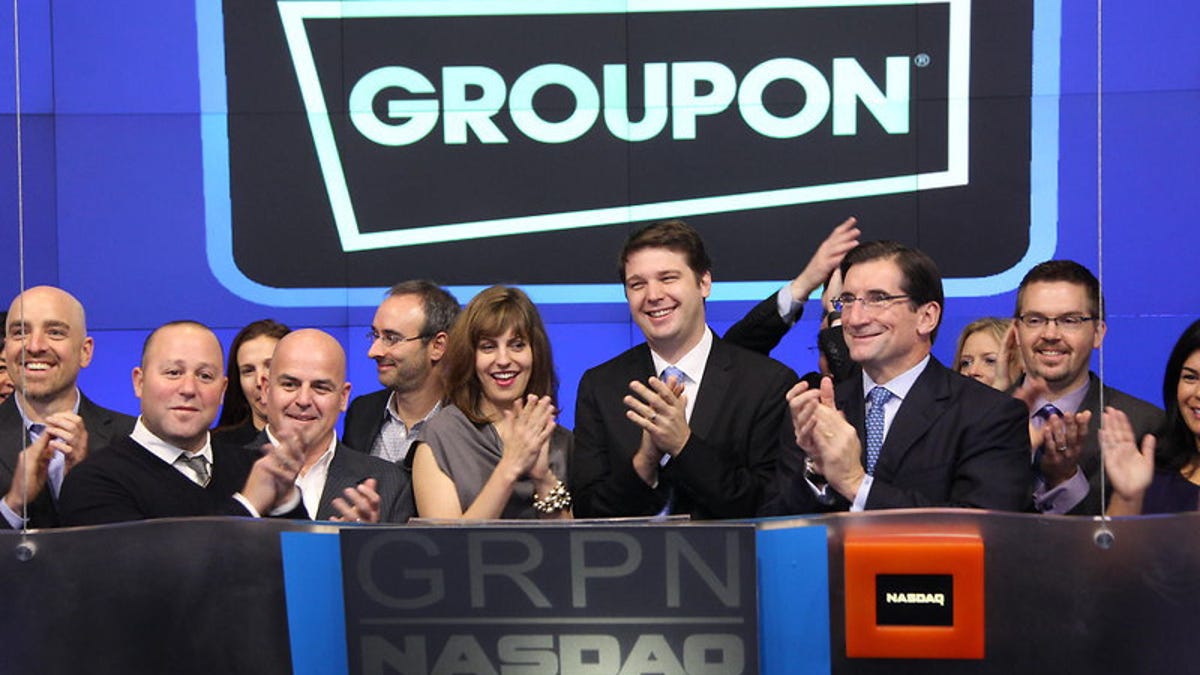Groupon fails to turn Q4 profit, though revenue soars
The daily deals pioneer posts a quarterly loss of $37 million, though revenues nearly tripled.

Groupon, the daily deals pioneer that's won plenty of skeptics as well as copy cats, today reported its first quarterly results as a public company, in which it fell short of what Wall Street had expected.
The company posted a net loss of $37 million, or 8 cents per share, on revenue of $506 million, roughly three times what it pulled in the year before. Net loss on an adjusted basis came in at $9.8 million, or 2 cents a share.
Groupon's revenue number beat the $473 million that Wall Street analysts were expecting, but the Street was looking for Groupon to turn a profit of three cents a share.
The company attributed its net loss in part to its overseas expansion efforts and unfavorable foreign exchange rates.
For the year, Groupon said it had a net loss of $275 million, far improved from its $413 million net loss in 2010. Sales, meantime, climbed more than fivefold to $1.6 billion for 2011.
The company, which blasts out daily deal offers to its e-mail subscribers, said its worldwide customer base rose 20 percent in fourth quarter to more than 33 million.
Groupon, with 10,000 employees, generated about 60 percent of its 2011 revenue overseas.
"We will continue to invest in new services and tools that help our merchant partners be more successful and drive local commerce around the world," CEO and cofounder Andrew Mason said in a statement.
The company is struggling to turn Groupon into a profitable business, and it spends a ton on marketing ($770 million in 2011, up from $291 million in 2010). But for all the reports that merchants are shying away from using Groupon to lure new customers, Groupon has evidence to the contrary.
Its gross billing for the year--that's the amount it collects before giving merchants their cut--rose 437 percent to $4 billion.
Groupon is just more than three years old, and Mason has made plenty of blunders along the way--even misstating its revenues before it went public.
But he's also been shrewd, disproving armies of skeptics and creating a business model that several hundred others have replicated, often with little success. Groupon and No. 2 daily deal company Living Social are far and away the market leaders.
In December 2010, Mason turned down a reported $6 billion buyout offer from Google, opting instead to aim for a public offering. When Groupon went public in November it raised $700 million in what was the biggest tech IPO since Google.
The stock soared, then tumbled, and lately has traded well above its offering price of $20, giving the company a current market value of about $16 billion.
The stock lost $3.89, or 15.8 percent, in after-hours trading, however, and tomorrow is likely to be grim.
More to come

